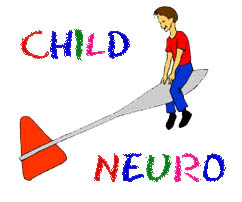

How is Attention Impairment Related to Childhood Absence Epilepsy?
An EEG/fMRI CAE Study at Yale University
Academy Sites Books Clinical CME E-mail Journals Links Medline Parents Pharmaceuticals Professional Research Teaching Web Portals Internet Course
Have you or your patients ever wondered why patients with absence epilepsy have impaired attention as their major deficit? Is this caused by generalized brain dysfunction, or by changes in specific thalamocortical networks important for normal consciousness? And why is impaired attention seen so often even between absence seizures in these patients? Is this a side-effect of seizure medications, or a sign of underlying interictal network dysfunction?
Dr. Hal Blumenfeld asks for your help in conducting a research study to address these questions. If you have any patients with childhood absence epilepsy or juvenile absence epilepsy, please consider referring them for this study.
Participants will undergo simultaneous EEG-fMRI, attention & behavioral testing to determine which parts of the brain are affected by the spike-wave discharge, and how this may interact with normal mechanisms of attention and consciousness. Data obtained both during and between absence seizures, either on or off medications will all be useful for these investigations.
Eligibility:
6 to18 years old
Diagnosed typical childhood absence epilepsy or juvenile absence epilepsy
No history of myoclonic or tonic-clonic seizures
Logistics:
This study is approved by Yale’s Human Investigations Committee
Patients are paid $100 for their participation, receive a photo of their brain, plus reimbursement for any transportation costs
To set up a meeting with Dr. Hal Blumenfeld, refer eligible patients, or for any questions, please contact:
Hal Blumenfeld, MD, PhD
Pager: (800) 656-0109
Cell: (203) 464-0885
E-mail:
hal.blumenfeld@yale.edu
OR
Mi Hae Chung
Research Coordinator, Neurology
Yale University School of Medicine
mihae.chung@yale.edu
(203)785-6465
If you would like more additional information please refer to our online posting at:
http://www.clinicaltrials.gov/ct/show/NCT00393666?order=5
Go back to Seeking Patients page
Last revised 11-Jun-2007 by Steven Leber